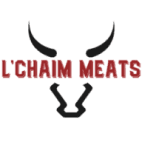This website stores cookies on your computer. These cookies are used to improve your website experience and provide more personalized services to you, both on this website and through other media. To find out more about the cookies we use, see our privacy policy.
Acquire A Reliable
SQA Engineer Within 24 Hours
Ensure your software's reliability with our accomplished SQA Engineers. They fortify your product against defects, safeguarding users' trust and satisfaction.
Clients rate Webevis SQA Engineer 4.9 / 5.0 on average based on 4,330 reviews.
3 Steps To Your Perfect SQA Engineer With Webevis
Evaluate
Assess your project needs, budget, and timeline to determine the ideal SQA Engineer profile and requirements for success.
Collaborate
Work closely with our expert team to select a dedicated SQA Engineer who aligns perfectly with your project goals.
Optimize
With your dedicated SQA Engineer in place, optimize your software development process, boost quality, and achieve success.
Our SQA Engineers Pool
- Diverse Testing Skills For Comprehensive Coverage
- Swift Issue Resolution And Efficient Problem-Solving
- Meticulous Attention Ensures Bug-Free Software
- Seamless Team Integration Fosters Collaboration
- Boosted Software Reliability With Expert Quality Control
- Cost-Effective Solutions Drive Quality Assurance Success
Our Quality Assurance Services
Our full suite of Quality Assurance services is meticulously designed to enhance your software's reliability, performance, and user satisfaction.
Functional Testing
Automation Testing
Security Testing
Usability Testing
Performance Testing
Regression Testing
Mobile App Testing
Why Should You Trust Our SQA Engineers?
Our seasoned SQA Engineers are your trusted partners in achieving software excellence. With expertise, meticulous testing, and customized solutions, we ensure your projects meet and surpass quality expectations for lasting success.
Technical Prowess
Our engineers excel in the latest testing methodologies, ensuring robust, bug-free software for your users.
Efficient Collaboration
Seamlessly integrate our experts into your team for efficient, collaborative QA processes and faster development cycles.
Cost-Effective Solutions
Achieve exceptional software quality without breaking your budget, thanks to our flexible and cost-effective hiring options.
Client-Centric Approach
We prioritize your project's unique needs, delivering tailored solutions that precisely match your quality assurance requirements.
Proven Track Record
Benefit from our engineers' extensive experience and a track record of delivering high-quality software across various industries.
Reliability and Trust
Count on us to enhance your software's reliability, ensuring your brand's trustworthiness and customer satisfaction.
Tools and Platforms
Were generated in sales by our marketers for our customers in 2021 What your Webevis experts use to help you grow

Expert Talent Access
Our process simplifies access to top expertise, ensuring your software quality assurance needs are met efficiently, effectively, and with exceptional precision.




Ready To Optimize Your Software Performance With SQA Engineers?
Our SQA Engineers ensure your software's quality, finding and fixing bugs to deliver a seamless user experience, saving your business time and resources.
The Complete Guide To Hiring Sqa Engineers
Quality Assurance (QA) is the cornerstone of successful software development. It ensures that the end product meets predefined quality standards, is free from defects, and delivers an exceptional user experience. In this guide, we'll illuminate the process of hiring a Software Quality Assurance (SQA) Engineer, providing insights for a successful partnership.
Why Hire A Software Quality Assurance (SQA) Engineer?
Hiring a Software Quality Assurance (SQA) Engineer is essential for several compelling reasons. Firstly, they serve as a critical quality gatekeeper, meticulously testing software to ensure it meets predefined quality standards. SQA Engineers identify and rectify defects, reducing costly post-release issues and safeguarding your brand's reputation. Moreover, they enhance user satisfaction by delivering reliable, secure, and user-friendly software. SQA Engineers streamline development processes, saving time and resources. Their expertise in various testing types, automation, and technical proficiency makes them invaluable in today's competitive digital landscape, where software excellence is paramount for success.
What Skills Should You Look For In A SQA Engineer?
When hiring a Software Quality Assurance (SQA) Engineer, it is crucial to identify candidates with a well-rounded skill set to ensure the success of your software projects. Essential skills to consider include:
1.
Bachelor's Degree
Proficiency in software development and testing methodologies (e.g., Agile, DevOps).
Technical expertise in test automation tools (e.g., Selenium) and programming languages (e.g., Java, Python).
Strong test case design and execution skills.
Regression testing and bug tracking proficiency.
Effective communication and collaboration abilities.
Problem-solving and critical thinking capabilities.
Attention to detail and meticulousness in testing processes.
Adaptability to new technologies and tools.
Commitment to quality and a user-centric approach to software testing.
What Are The Tools Used By SQA Engineers?
Software Quality Assurance (SQA) Engineers rely on diverse tools to ensure the quality, reliability, and performance of software products. These tools cover various aspects of the QA process:
1.
Test Management Tools
TestRail and JIRA facilitate test case management, test execution, and defect tracking.
2.
Automation Testing Tools
Popular choices include Selenium, Appium, and Cypress for automated test script development and execution.
3.
Performance Testing Tools
Engineers employ tools such as JMeter, LoadRunner, and Gatling to assess an application's performance under various loads.
4.
Security Testing Tool
Tools like OWASP ZAP and Nessus help identify vulnerabilities and assess security.
5.
Continuous Integration Tools
Jenkins and Travis CI enable seamless automated testing integration into the development pipeline.
6.
Code Analysis Tools
Engineers use static analysis tools like SonarQube to detect code quality issues.
7.
Test Data Management Tools
Tools like Delphix and TDM help create and manage test data.
8.
Defect Tracking Tools
Beyond JIRA, engineers use tools like Bugzilla and Redmine to manage and prioritize defects.
9.
Monitoring and Analytics Tools
Tools such as New Relic and Google Analytics monitor software in real time, allowing engineers to identify issues promptly.
10.
Collaboration Tools
Tools like Slack and Microsoft Teams facilitate communication and collaboration among QA teams and developers.
These tools empower SQA Engineers to comprehensively test software, automate repetitive tasks, and ensure a smooth development process, ultimately delivering high-quality software to end-users.
How To Write An SQA Engineer Job Description?
To create an effective Software Quality Assurance (SQA) Engineer job description, follow these key steps:
1.
Clear Title
Start with a precise job title like "SQA Engineer" or "Quality Assurance Specialist."
2.
Introduction
Provide a brief company introduction, emphasizing your values and the role's importance within the organization.
3.
Responsibilities
Specify essential qualifications, such as testing expertise, automation skills, and technical proficiency.
4.
Desired Skills
Mention additional skills or industry-specific experience that would be advantageous.
5.
Company Culture
Describe your company culture and values to attract like-minded candidates.
6.
Communication
Emphasize the need for effective communication skills, essential for cross-functional collaboration.
Interview Questions To Hire SQA Engineer
Explore our selection of interview questions tailored to assess the skills, knowledge, and experience of SQA Engineer candidates. These thoughtfully crafted questions will help you identify top-quality talent and build a team that ensures software excellence and reliability.
1.
Can you explain the importance of test automation in software quality assurance?
Test automation is a critical component of software quality assurance. It allows us to execute repetitive test cases quickly and consistently, ensuring that every aspect of the software is thoroughly tested. Automation also helps identify defects early in the development cycle, reducing the cost and effort required for bug fixes. Furthermore, it frees up manual testers to focus on exploratory testing and complex scenarios, enhancing overall test coverage and software quality. Automation is pivotal in achieving faster release cycles, reducing human errors, and providing reliable and repeatable test results. Ultimately, it contributes to delivering high-quality software that meets user expectations.
2.
What is regression testing, and why is it important?
Regression testing is a fundamental practice in software quality assurance. It involves retesting the existing functionality of an application after new code changes or updates have been introduced. The primary objective is to ensure that the recent modifications have not introduced new defects or negatively impacted the existing features. It is vital because as software evolves, even minor changes can inadvertently break previously working functionalities. By conducting regular regression testing, we verify the software's stability and reliability across different iterations and maintain a consistent level of quality. This practice helps catch issues early, reducing the cost and effort of fixing defects and ensuring a positive user experience.
3.
What are the differences between white-box and black-box testing in software quality assurance?
White-box testing and black-box testing are two distinct approaches to software quality assurance.
White-box testing, also known as structural or glass-box testing, involves examining a software application's internal logic and code structure. Testers require knowledge of the code, algorithms, and data structures. This approach allows in-depth testing of individual functions, statements, and code paths. It is highly effective in identifying issues related to code correctness, such as logic errors and coding standards violations.
On the other hand, black-box testing treats the software as a "black box," where testers evaluate its functionality without knowledge of the internal code. Testers focus on inputs and expected outputs, testing the software based on specifications, requirements, and user expectations. This approach is helpful for functional, integration, and acceptance testing.
4.
What is a test plan? What are the key elements to include in a test plan document?
A test plan is a comprehensive document that outlines the strategy, scope, objectives, resources, schedule, and deliverables for software testing within a project. It serves as a roadmap for the entire testing process.
Critical elements in a test plan document include:
Test Objectives
Clearly defined goals and purposes of the testing phase.
Test Scope
The specific functionalities and areas of the software to be tested, including in-scope and out-of-scope items.
Test Strategies
The approach to testing, including types (e.g., functional, performance) and methodologies (e.g., Agile, Waterfall).
Test Environment
Hardware, software, and tools required for testing to replicate the production environment.
Test Schedule
A timeline with milestones, deadlines, and dependencies.
Resource Allocation
Identification and allocation of necessary resources.
Entry and Exit Criteria
Conditions for starting and ending testing phases.
Test Deliverables
Documents and reports generated during testing, such as test cases, defect reports, and summary reports.
5.
What is a test strategy, and how does it differ from a test plan?
A test strategy is a high-level document that outlines the overall approach to testing, including objectives, scope, resources, and timelines. It provides a roadmap for the entire testing process. A test plan, on the other hand, is a detailed document that specifies test objectives, test cases, test data, and test schedules for a specific testing phase or level. While a test strategy is more abstract and strategic, a test plan is particular and tactical, focusing on implementing testing activities.

























